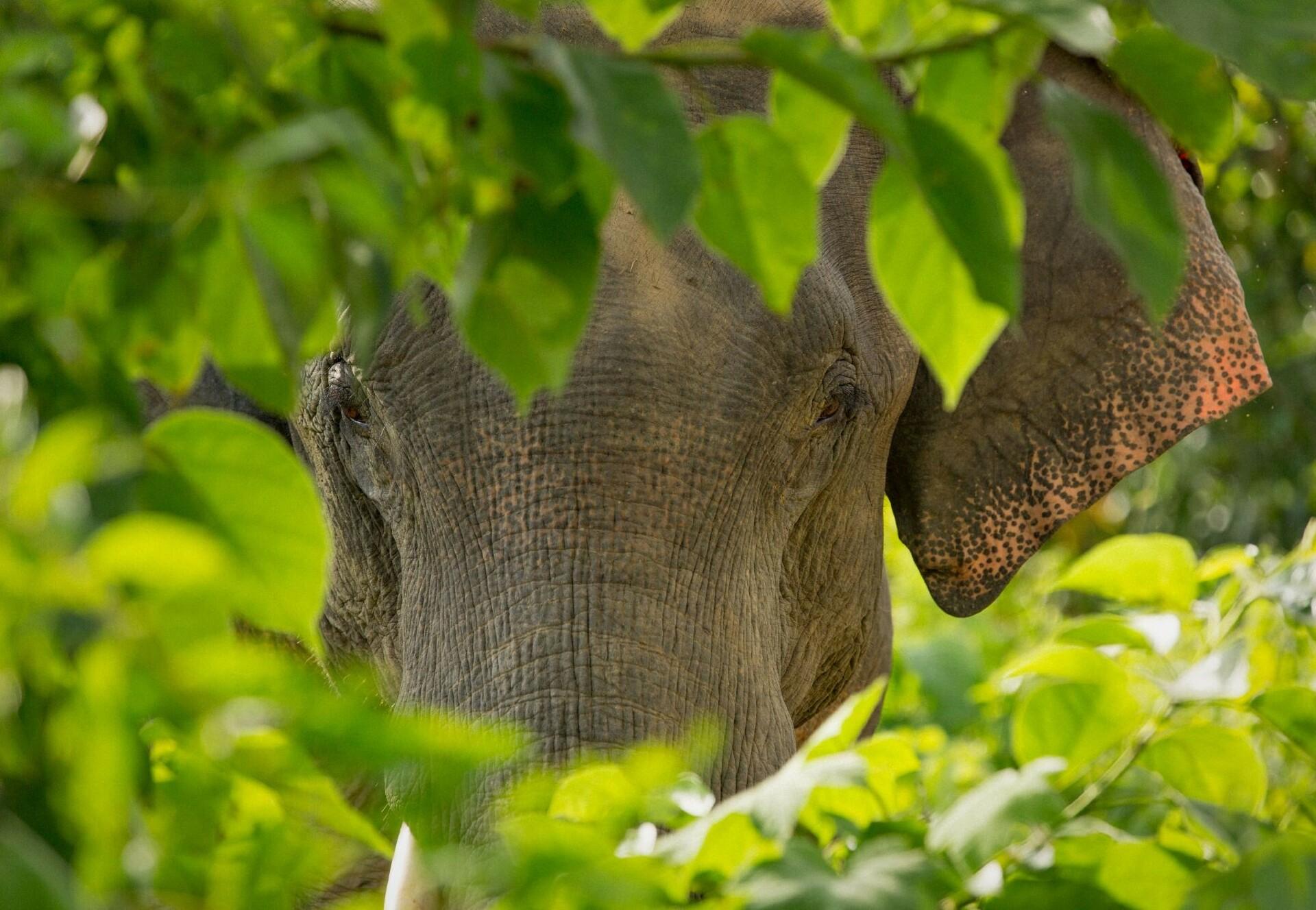
10 Facts About Elephants
Amazing and entertaining facts about the grey giants
- Habitats: An elephants tusk is not only for defence; they also use their tusks for digging for salt and roots, debarking trees, and hacking through the scrub. If you look closely, you can see which tusk is more worn out because it is the preferred side of the elephant, as among elephants there are 'left teeth' and 'right teeth', and out of habit they will stick to the same side!
- Lucky charms: Whether its weddings, final exams, business deals or enrollment of children: Indian Hindus always adore the elephant-headed God Ganesha when luck or success is needed. In some Asian countries, albino elephants are considered sacred.
- Foodies: Among other things, elephants like grass, herbs, tree foliage, fruit, bark, pith and vines
- Snorkelers: With a snorkel the length of an elephant's trunk, us humans could not breathe due to the high pressure with water depth. Elephants, on the other hand, have such stable lungs that they can suck in air from the water surface, even with a trunk up to 1.5 meters long. This allows them extended diving walks.
- Landscapers: Elephants are frequent travellers. They carry the seeds of eaten plants with them and excrete them in a large radius. So they plant new flora everywhere. In addition, their dung is so nutrient-rich that many other species can feed on it.
- Animal Keeper: By digging for water with their big feet, elephants release vital groundwater for other animals as well. An elephant footprint sunk into the ground and filled with water leaves a "miniature biotope" so to speak.
- Thick Skinned: Although elephant skin is very thick on many parts of the body, it is highly sensitive. After bathing elephants blow sand and mud on their wet skin with their trunk to create natural protection against sunburns and insects.
- Sensitive: Elephants can communicate over long distances with their conspecifics and keep in touch. To do so, they apply seismic communication signals that they pick up through their feet.
- Family animals: Their herds (consisting of several groups) in Asia comprise about 50 to 70 animals, in Africa more than 100 animals. They are led by an experienced, often particularly large and strong elephant cow. In the herd of elephants, care is taken of each other. Social cohesion is enormously important. When elephant bulls become independent (when Asian elephant bulls are between 10 and 15 years of age, and African elephant bulls between 8 and 19 years of age), they leave the herd and form "male homeless". However, they continue to encounter their families, and the contacts remain friendly.
- Elephant brain: Elephants have such sophisticated brains that they experience a multitude of emotions - much like humans. They are extremely social and compassionate, comforting each other and even grieving for their deceased. They are also quite rightly known for their good memory. And they also need it if they want to find a source of water during dry seasons.
What can you do
Humankind has drastically declined elephant populations in both Africa and Asia. However, we can all take responsibility for protecting these great animals:
- Do not buy products made from elephant teeth or elephant skin. If you see a product made of ivory or elephant leather on a market in Asia, Africa or Europe, be sure to ask. If in doubt: keep your fingers away!
- Avoid tourist attractions with elephants. Elephants are wild animals. Taming them requires an extremely brutal, inhumane 'education' that leaves deep scars on the elephant's body and soul.
- Clarify friends and acquaintances. A personal conversation can mean a future decision in favor of the elephants. Knowledge is power - and in this case also: animal welfare!
